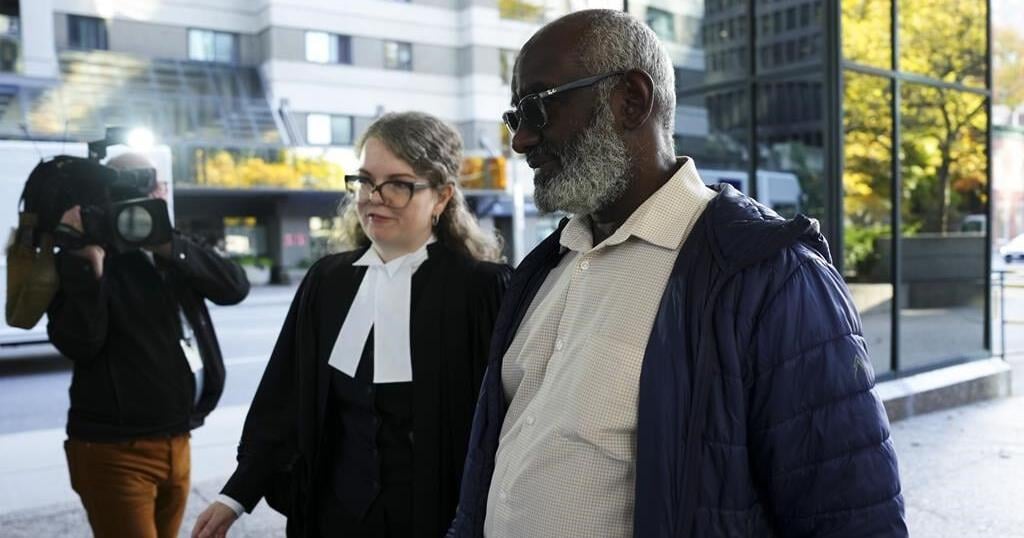COVID-19 vaccine booster shots will be made widely available to Americans in September, while several other countries including Israel, Germany and France have decided to offer boosters to older adults and people with weak immune systems.
As of yet, there is no consensus among scientists and agencies that a third dose is necessary.
The World Health Organization (WHO) said on Aug. 18 that current data does not indicate a need for COVID-19 booster shots, and has repeatedly called for a delay arguing that the most vulnerable people worldwide should be fully vaccinated before high-income countries deploy a top-up.
The following outlines the options countries and regions are considering on the issue:
UNITED STATES
COVID-19 vaccine booster shots will be made widely available from Sept. 20 to Americans who received their initial inoculation of two-dose COVID-19 vaccines made by Moderna and by Pfizer and BioNTech AG at least eight months earlier, U.S. health officials said on Aug. 18.
EUROPEAN UNION
The European Union’s drugs regulator said on Aug. 6 there’s still not enough data to recommend COVID-19 vaccine boosters.
Recent supply contracts with Pfizer/BioNTech and Moderna have included the potential for the bloc to buy booster shots.
AUSTRIA
Austria plans to start COVID-19 vaccine booster shots on Oct. 17, nine months after the first group of people to get the shots received their second dose.
BELGIUM
Belgium has authorised the use of boosters – specifically mRNA shots – for immunosuppressed people. More data is needed before considering extra shots for the elderly and people living in nursing homes.
BRITAIN
Britain has begun planning for a booster campaign starting later this year after top vaccine advisers said it might be necessary to give third shots to the elderly and most vulnerable from September. It said it would buy 60 million more doses of Pfizer/BioNTech’s vaccine ahead of the possible booster programme, bringing its total order of the shot to 100 million doses.
BRAZIL
Brazilians should prepare for annual COVID-19 immunisations to reinforce vaccines, the head of public-sector laboratory Butantan said in May.
CAMBODIA
Cambodia started on Aug. 12 offering AstraZeneca booster shots to those who have received the inactivated virus vaccines developed by Sinopharm and Sinovac.
CANADA
The Canadian province of Ontario will begin offering third COVID-19 vaccine doses to vulnerable people as early as this week, its chief medical officer said on Aug. 17.
CHILE
Chile began on Aug. 11 administering booster shots to those already inoculated with Sinovac’s vaccine in a bid to lock in early success following one of the world’s fastest mass vaccination drives.
CHINA
COVID-19 booster shots should become available in China after the country vaccinates more people to provide broader protection against the disease, a senior executive at a Sinopharm unit responsible for developing COVID-19 vaccines told state media.
CZECH REPUBLIC
Some groups will probably need to get a third vaccine shot, Health Minister Adam Vojtech said on Aug. 17.
DENMARK
Danes with weak immune systems will be recommended to get a COVID-19 vaccine booster next week, the Danish Health Authority said on Aug. 20.
DOMINICAN REPUBLIC
Dominican health authorities started distributing a voluntary third vaccine dose in early July.
ECUADOR
Ecuador will administer a third dose of the coronavirus vaccine to people with weak immune systems and will carry out tests to determine if the rest of the inoculated population also needs a booster, Health Minister Ximena Garzon said on Aug. 18.
FINLAND
It has not made a decision on the recommendation of a third dose but is expected to do so in August.
FRANCE
President Emmanuel Macron said France was working on rolling out third COVID-19 vaccine doses to the elderly and vulnerable from September.
GERMANY
Germany will in September start to offer a booster shot to vulnerable people, such as the elderly and those with weak immune systems. The shots will be mRNA-vaccines from Pfizer/BioNTech and Moderna regardless of what was used previously.
GREECE
Greece’s top medical advisers said on Aug. 23 vulnerable groups with underlying diseases should get booster shots. The booster shot with mRNA vaccines, if approved by the government, will be available in the first week of September, the head of the National Vaccination Committee said.
HUNGARY
Hungary has been offering an optional third dose of a COVID-19 vaccine from Aug. 1.
INDONESIA
Indonesia started giving booster shots produced by Moderna to medical workers in July and is considering extra doses for wider use.
ISRAEL
Israel in July started offering a third shot of the Pfizer/BioNTech vaccine to people aged over 60 and to those over 50 from Aug. 13. Its booster campaign was extended to teachers and people over 40 and teachers on Aug.19, and to those over 30 on Aug. 24. It continues to administer extra doses to health workers.
RUSSIA
Health clinics in Moscow started offering booster shots in July to people vaccinated six months ago or more.
PHILLIPINES
The Philippines is allotting 45.3 billion pesos ($899 million) for COVID-19 booster shots under its 2022 budget, an official said on Aug. 19, even as health authorities have yet to conclude there is a need for a third dose.
SINGAPORE
Singapore said in May it was making plans for booster shots later this year or early next year, if necessary.
SOUTH KOREA
South Korea said in June it plans to secure more mRNA vaccines to use as boosters next year for its entire population of 52 million.
SLOVENIA
Slovenia will most probably start recommending a third vaccine dose, the head of the National advisory committee on immunization, Bojana Beovic, told the Slovenian national broadcaster on Aug. 18.
SWEDEN
The majority of Swedes will be offered a booster shot against COVID in 2022, while high risk groups could get a third shot this autumn, the health authority said on Aug. 3.
SWITZERLAND
Switzerland has ordered 43 million doses of vaccines, including preparations for potential booster shots in 2022, should they be needed, the Health Ministry said.
GULF STATES
The United Arab Emirates will start providing a booster shot to all fully vaccinated people. The shot will be available to people considered at high risk three months after their second vaccine dose, and six months for others.
In June, the UAE and Bahrain made the Pfizer vaccine available as a booster shot to those initially immunised with a vaccine developed by China’s Sinopharm.
THAILAND
Thailand plans to give AstraZeneca or mRNA-type booster shots to an estimated 3.4 million people who were administered the Sinovac brand earlier. Booster doses have already been given to medical and frontline workers who received the Chinese vaccine.
TURKEY
Turkey is allowing people who were inoculated with Sinovac’s vaccine to take an additional Pfizer dose, the health ministry said on Aug. 16.
URUGUAY
Uruguay offers a Pfizer dose for those fully vaccinated with Sinovac’s Coronavac. https://bit.ly/37SFw5P
COMPANIES
The U.S. Food and Drug Administration (FDA) authorized a third dose of COVID-19 vaccines by Pfizer-BioNTech and Moderna on Aug. 13 for people with compromised immune systems.
Pfizer and BioNtech have submitted data to the FDA for COVID-19 vaccine booster authorization and plan to submit it as well to the European Medicines Agency (EMA) and other regulatory authorities in coming weeks.
Pfizer and Moderna have raised the prices of their COVID-19 vaccines in their latest EU supply contracts, the Financial Times reported on Aug. 1.
Moderna had earlier struck deals with Spain’s Rovi and Switzerland’s Lonza at a Dutch plant that would boost 50-microgram dose production – half the level of its original shots – in Europe to up to 600 million doses annually, with the capacity due to come on line this year.
On Aug. 5, Moderna said its COVID-19 shot was about 93% effective four to six months after the second dose, showing hardly any change from the 94% efficacy reported in its original clinical trial.
It expects, however, a COVID-19 booster to be necessary prior to the winter season.
AstraZeneca said it was looking into how long the vaccine’s protection lasts and if a booster dose would be needed.
(Reporting by Matthias Blamont in Paris, Michael Erman in New York, Julie Steenhuysen in Chicago, John Miller in Zurich, Ludwig Burger in Frankfurt, Miyoung Kim in Singapore, Alistair Smout in London, Essi Lehto in Helsinki, Stephanie Nebehay in Geneva, Maayan Lubell in Jerusalem, Dagmarah Mackos, Pawel Goraj, and Veronica Snoj in Gdansk; Editing by Emelia Sithole-Matarise and David Holmes)
Related

























